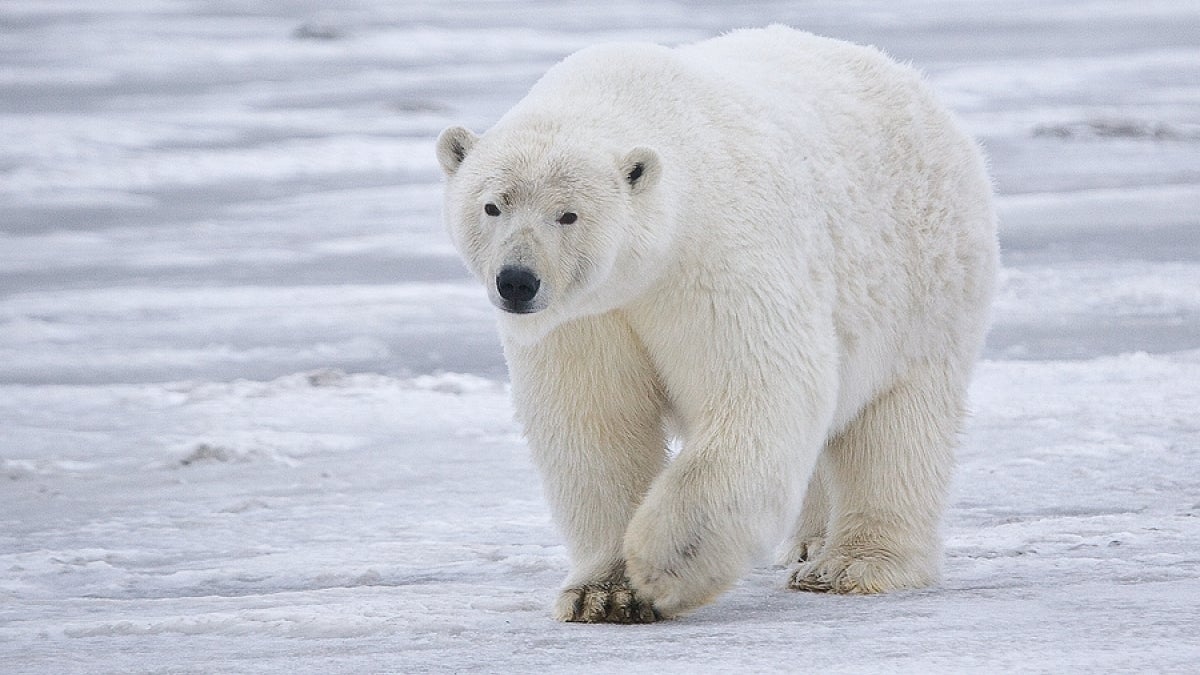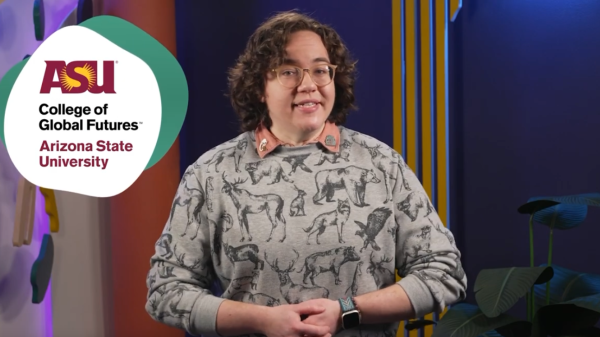ASU postdoc's endangered species tool gets national attention

The IUCN Polar Bear Specialist Group classifies the polar bear as a vulnerable species, identifying sea ice loss due to climate change as the primary threat to their survival. Photo courtesy Wikimedia Commons
Research on endangered species by recent Arizona State University graduate Olivia Davis is getting national attention.
Davis, who graduated from the School of Life Sciences’ biology and society PhD program, developed a tool to improve the process of evaluating the status of endangered species. Namely, the tool highlights whether a species is getting closer to recovery or declining.
That dissertation research was published last summer in a first-authored paper in the journal Conservation Biology. And now, her work is being highlighted by the The Wildlife Society, where it was featured in their quarterly newsletter in January.
“I’m excited that (the papers) got the attention of an important wildlife organization, and that people are reading it, which was the goal,” Davis said.
The U.S. Department of Fish and Wildlife reviews endangered species’ statuses every five years. Populations of endangered species are always fluctuating, but the five-year reviews don’t always reflect those changes; they only report whether a species has changed in endangered status, for example, from being considered “endangered” to “critically endangered.”
Davis’s metric aims to help biologists capture nuances beyond changes in endangered status when conducting those reviews so the reviews can help inform conservation managers even when a species’ status has changed on paper.
“The idea is that (the metric) would give managers and practitioners more of a direct line of knowing what management action we can change even if the species is still in danger.”
Davis worked with a team of more than 30 people to develop the metric, from government biologists and nonprofit workers to ASU undergraduate students. They found that though the endangered statuses of species like polar bears or Sierra Nevada bighorn sheep have not changed, the species were still declining, and largely due to the same threats that have been causing decline for decades.
“Knowing how they’re declining and to what degree would allow practitioners and managers to decide where to intervene and where to focus recovery,” Davis said, “which is especially important when you think about the low budgets that Fish and Wildlife have. These reviews help show where they could go furthest in terms of return on investment for endangered species recovery.”
Davis’s metric is being put to good use beyond her PhD; the U.S. Department of Fish and Wildlife has already agreed to adopt it. Davis says that she hopes the adoption of that metric can help conservationists direct their action and make decisions more efficiently.
“You never know with scientific papers if they’re going to actually be impactful or not,” she said. “When The Wildlife Society reached out, it was exciting to know that people are paying attention, and it might be making waves and inspiring other work.”
More Environment and sustainability

Floods linked to rise in US deaths from several major causes
New research, co-authored by Arizona State University Assistant Professor Aaron Flores and published in Nature Medicine, uncovers a concerning link between severe flooding and increased…

ASU partners with education production company to share research with online learners
Through Arizona State University’s partnership with Complexly education production company, the online educational initiative Study Hall has forged a new pathway for students to earn college credits…

First-year students get immersive cultural, sustainability lessons in Costa Rica
Studying abroad can be a life-changing experience for any student, let alone a new student who just completed their first semester in college.That's what more than 50 Arizona State University…
